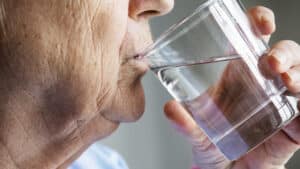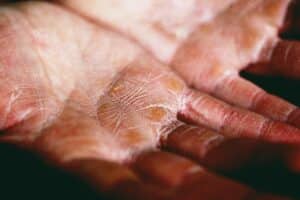Dehydration in Florida’s Elderly Nursing Home Residents
Dehydration is a serious health concern for elderly individuals, particularly those who reside in nursing homes or long-term care facilities in Florida who need assistance with drinking water. Dehydration can lead to a range of health complications, including urinary tract infections, kidney stones, and even hospitalization. In nursing home residents, dehydration can be especially problematic due to factors such as chronic illnesses, medications, and impaired thirst perception. This article aims to provide a comprehensive understanding of dehydration in elderly nursing home residents in Florida, including its causes, symptoms, prevention, and treatment.
According to the Centers for Disease Control and Prevention (CDC), dehydration is a common condition that affects many elderly individuals. In fact, studies have shown that up to 50% of elderly nursing home residents experience dehydration at some point. Dehydration occurs when the body loses more fluids than it takes in. This can happen for various reasons, such as not drinking enough fluids, excessive sweating, or vomiting and diarrhea. In elderly individuals, dehydration can be caused by a variety of factors, including chronic illnesses such as diabetes or kidney disease, medications that increase urination or decrease thirst, and decreased thirst perception due to aging or cognitive impairment.
Given the prevalence and severity of dehydration in elderly nursing home residents in Florida’s hot weather, it is important to understand its signs and symptoms to prevent or treat it effectively. In the next section, we will discuss the common causes and risk factors for dehydration in this population. It is also important to contact a Florida Nursing Home Abuse and Neglect Lawyer if you or a loved one has suffered from dehydration due to a lack of care in a nursing home in Florida.
Causes and Risk Factors for Dehydration in Elderly Nursing Home Residents

Side view of elderly woman drinking water
Dehydration in elderly nursing home residents can be caused by a variety of factors, including chronic illnesses, medications, and impaired thirst perception. The lack of nursing home facility staff is one of the major factors to look for. Understanding these factors is crucial to preventing dehydration in this vulnerable population.
Chronic Illnesses:
Many elderly nursing home residents have chronic illnesses, such as diabetes, kidney disease, or congestive heart failure. These conditions can increase the risk of dehydration by causing the body to lose fluids more quickly or by impairing the body’s ability to retain fluids. For example, individuals with diabetes may experience increased urination, which can lead to dehydration if they do not drink enough fluids to replenish lost fluids. Similarly, individuals with kidney disease may have impaired kidney function, making it more difficult for the body to retain fluids.
Medications:
Medications can also increase the risk of dehydration in elderly nursing home residents. For example, diuretics (which are commonly prescribed to treat high blood pressure or heart failure) can increase urination, leading to fluid loss if fluid intake is not increased. Antipsychotic medications, which are often used to treat behavioral and psychological symptoms of dementia, can also decrease thirst perception, leading to decreased fluid intake.
Impaired Thirst Perception:
As we age, our sense of thirst may become less acute, leading to decreased fluid intake. Additionally, elderly individuals with cognitive impairment or dementia may have difficulty recognizing or responding to thirst cues. This can be exacerbated in nursing home settings, where access to fluids may be limited or staff may not have the resources to monitor fluid intake closely.
Prevention and Treatment of Dehydration in Elderly Nursing Home Residents
Preventing and treating dehydration in elderly nursing home residents requires a multi-faceted approach that addresses both the underlying causes of dehydration and the individual needs of each resident.
Prevention Strategies:
Encourage fluid intake: Nursing home staff should encourage residents to drink fluids regularly, even if they do not feel thirsty. Water, fruit juice, and herbal tea are all good options.
Monitor fluid intake: Nursing home staff should monitor residents’ fluid intake and output regularly. This can be done by recording fluid intake and urine output, or by using electronic monitoring systems.
Adjust medication regimens: If a resident’s medications are contributing to dehydration, their medication regimen should be adjusted as necessary.
Adjust environmental factors: Nursing homes should maintain a comfortable temperature and humidity level and provide access to water and fluids throughout the facility.
Treatment Strategies:
Fluid replacement: The first step in treating dehydration is to replace lost fluids. This can be done through oral rehydration (drinking fluids) or intravenous fluids (administered through an IV).
Address underlying causes: If dehydration is caused by an underlying condition, such as kidney disease or diabetes, that condition should be addressed as well.
Address electrolyte imbalances: Electrolytes, such as sodium and potassium, can be lost along with fluids during dehydration. These imbalances should be addressed as necessary through oral or intravenous electrolyte replacement.
In addition to these strategies, nursing home staff should also provide supportive care, such as assisting with activities of daily living, monitoring vital signs, and ensuring that residents are comfortable and well-hydrated.
It is important to note that if you suspect your loved one is suffering from dehydration in a nursing home, you should contact a nursing home abuse lawyer in Florida, such as Distasio Law Firm, who can help investigate and pursue legal action if necessary.
Other risk factors for dehydration in elderly nursing home residents include mobility issues, which may make it more difficult for residents to access fluids independently, and environmental factors such as high temperatures or dry air.
Signs and Symptoms of Dehydration in Elderly Nursing Home Residents

Early Signs and Symptoms: Early signs of dehydration in elderly nursing home residents may include dry mouth, decreased urine output, dark yellow urine, and fatigue. Other symptoms may include dizziness, confusion, and dry or cool skin.
Moderate to Severe Signs and Symptoms: If dehydration is left untreated, it can lead to more severe symptoms, such as rapid heartbeat, low blood pressure, sunken eyes, and confusion or delirium. In severe cases, dehydration can lead to seizures, coma, or even death.
It is important to note that these symptoms can be caused by other conditions as well, so a diagnosis of dehydration should be confirmed by a medical professional. Additionally, elderly individuals may not experience all these symptoms, making it important for nursing home staff and family members to be vigilant and monitor fluid intake closely.
Key Takeaways About Dehydration
In summary, dehydration is a serious health concern for elderly nursing home residents in Florida and can have serious consequences if left untreated. It is important for nursing home staff and family members to be aware of the signs and symptoms of dehydration, and to take steps to prevent and treat it effectively.
Prevention strategies, such as encouraging fluid intake, monitoring fluid intake and output, and adjusting medication regimens and environmental factors, can help reduce the risk of dehydration in nursing home residents. Treatment strategies, such as fluid replacement and addressing underlying causes and electrolyte imbalances, can help treat dehydration when it does occur.
If you suspect your loved one is suffering from dehydration or other forms of nursing home abuse in Florida, it is important to seek legal help from a nursing home abuse lawyer, such as Distasio Law Firm. Our experienced attorneys can help investigate and pursue legal action to protect your loved one’s rights and hold nursing homes accountable for their actions.
By working together to prevent and treat dehydration in elderly nursing home residents, we can help ensure that they receive the high-quality care and attention they deserve.
Contact Distasio Law Firm For Help
If you suspect that your loved one has suffered from dehydration or other forms of nursing home abuse in Florida, it is important to seek legal help from an experienced nursing home abuse lawyer. Scott Distasio and the legal team at Distasio Law Firm has years of experience representing victims of nursing home abuse and their families in Florida.
To learn more about how we can help you and your loved one, please contact us today for a free consultation. Our nursing home abuse attorneys will review your case, answer any questions you may have, and help you understand your legal options.
Let us help you protect your loved one’s rights and hold nursing homes accountable for their actions by working with you on your nursing home abuse case.

